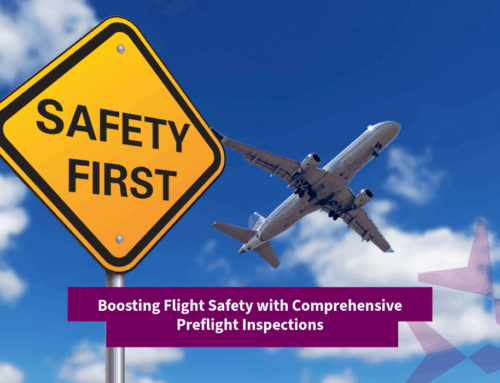How Ground Handling Services Contribute to Aircraft Safety
Ground handling services are a crucial component of aviation operations, playing a pivotal role in ensuring the safety, efficiency, and seamless flow of flights. These behind-the-scenes operations are not just about loading luggage or refueling aircraft—they are integral to maintaining safety standards that protect passengers, crew, and assets. Here’s a detailed exploration of how ground handling services contribute to aircraft safety.

1. Rigorous Aircraft Inspections and Maintenance Support
Before every flight, aircraft undergo thorough inspections conducted or supported by ground handling teams. These checks are vital for identifying and addressing potential issues that could compromise safety.
- Visual Inspections: Ground staff check for visible damages, such as cracks, dents, or fluid leaks, ensuring the aircraft is structurally sound.
- System Checks: Technicians verify the functionality of critical systems, including hydraulics, brakes, and landing gear.
- Collaboration with Engineers: Ground handling teams coordinate with maintenance crews to ensure any identified issues are promptly repaired before departure.
2. Precision in Aircraft Weight and Balance
Improper weight distribution or exceeding weight limits can jeopardize an aircraft’s stability and performance. Ground handling services play a critical role in ensuring accurate weight and balance.
- Cargo Loading: Teams follow strict guidelines to evenly distribute cargo and baggage, preventing imbalances during flight.
- Passenger Management: Ground crews adjust seating arrangements when necessary to maintain the aircraft’s center of gravity.
- Documentation: Comprehensive load sheets are prepared and verified to ensure compliance with safety regulations.
3. Safe Refueling Practices
Refueling is one of the riskiest ground handling activities, requiring strict adherence to safety protocols.
- Static Discharge Prevention: Ground handlers ensure the aircraft is properly grounded to prevent static electricity sparks during refueling.
- Fuel Quality Checks: Teams verify that the fuel meets aviation standards and is free from contaminants.
- Coordination with Crews: Refueling is conducted in sync with other activities, such as passenger boarding or cargo loading, without compromising safety.
4. Efficient Ground Movement and Marshalling
Ground handling teams are responsible for guiding aircraft safely while on the ground, reducing the risk of collisions or mishaps.
- Aircraft Marshalling: Trained personnel use hand signals or wands to guide pilots during parking and taxiing operations.
- Use of Pushback Tugs: Ground handlers ensure safe and precise pushback maneuvers to align aircraft with taxiways.
- Ramp Area Management: Teams coordinate vehicle and equipment movements around the aircraft to avoid accidents.
5. Adherence to Security Protocols
Ground handling services are the first line of defense in aviation security, ensuring that only authorized personnel and items are allowed near the aircraft.
- Passenger and Baggage Screening: Ground staff oversee strict screening procedures to detect prohibited items.
- Controlled Access: Teams monitor access to restricted areas, ensuring only cleared personnel approach the aircraft.
- Cargo Security: Ground handlers inspect and verify cargo for compliance with security standards.
6. Effective De-Icing and Weather Preparation
Extreme weather conditions pose significant risks to aircraft safety, and ground handling teams play a critical role in mitigating these risks.
- De-Icing Operations: Ground handlers remove ice and snow from aircraft surfaces to ensure proper aerodynamics.
- Weather Monitoring: Teams stay informed about weather conditions and coordinate with pilots to make necessary adjustments.
- Protective Measures: During storms, ground handlers secure aircraft and equipment to prevent damage.
7. Emergency Response Readiness
In the event of an emergency, ground handling teams are among the first to respond, ensuring quick and efficient action.
- Fire Safety: Teams are trained to handle fuel fires or other emergencies with specialized equipment.
- Evacuation Support: Ground handlers assist in evacuating passengers and crew during emergencies.
- Incident Reporting: Teams document and report incidents promptly, aiding in investigations and future prevention.
8. Compliance with Regulatory Standards
Ground handling services operate under strict regulatory frameworks to uphold safety standards.
- Training Programs: Ground staff undergo regular training to stay updated on safety procedures and protocols.
- Audits and Inspections: Ground handling companies are subject to periodic audits to ensure compliance with aviation safety standards.
- Standard Operating Procedures (SOPs): Teams follow meticulously designed SOPs to minimize human error.






